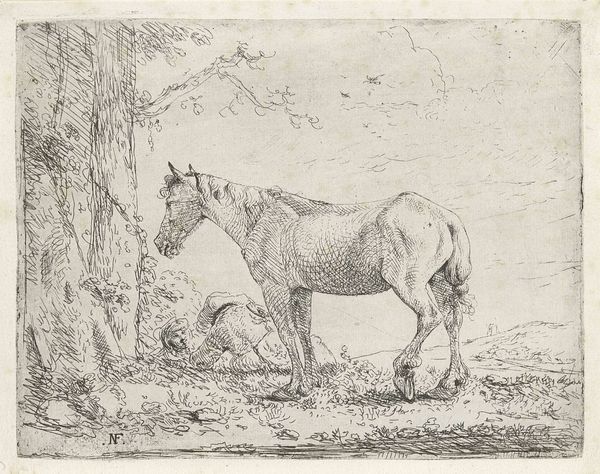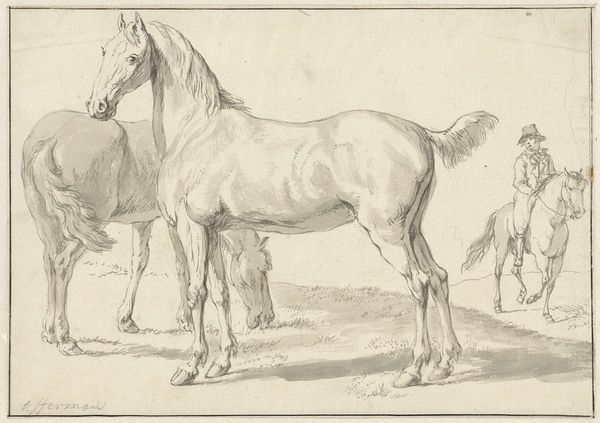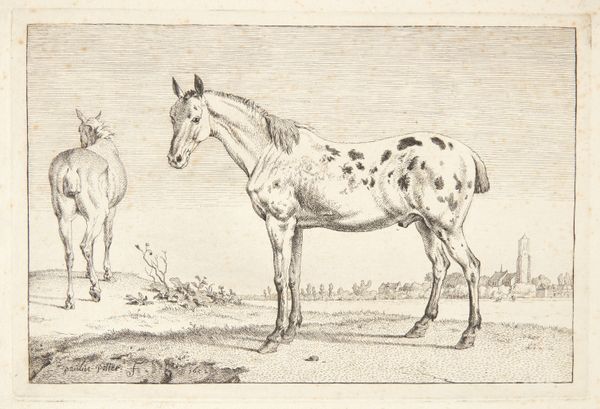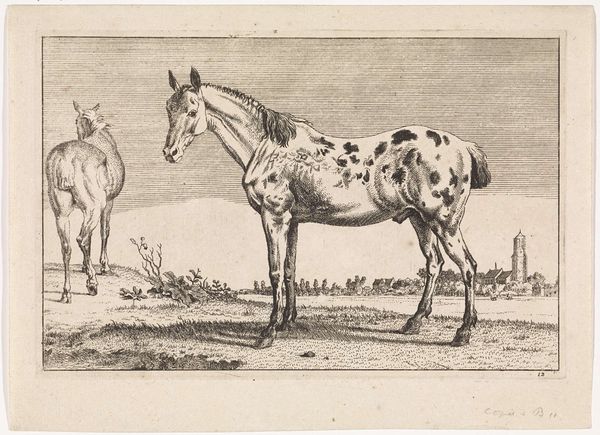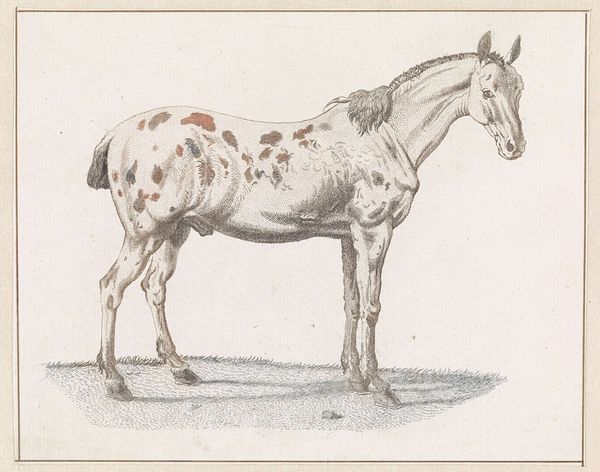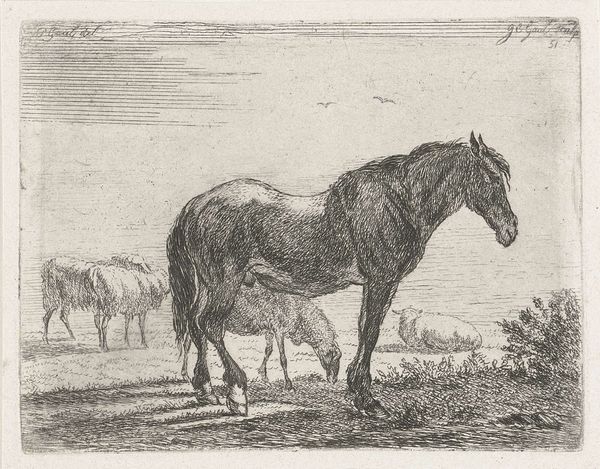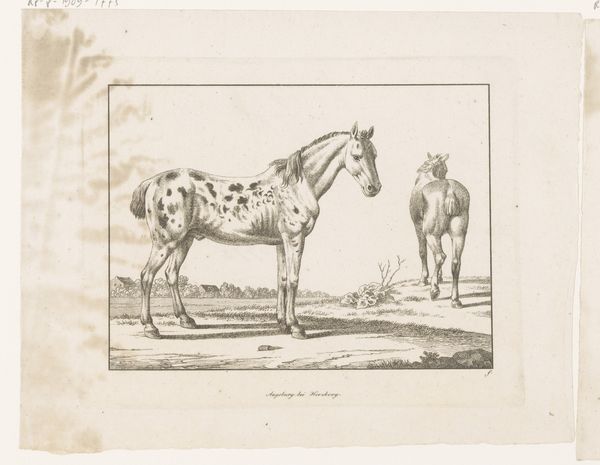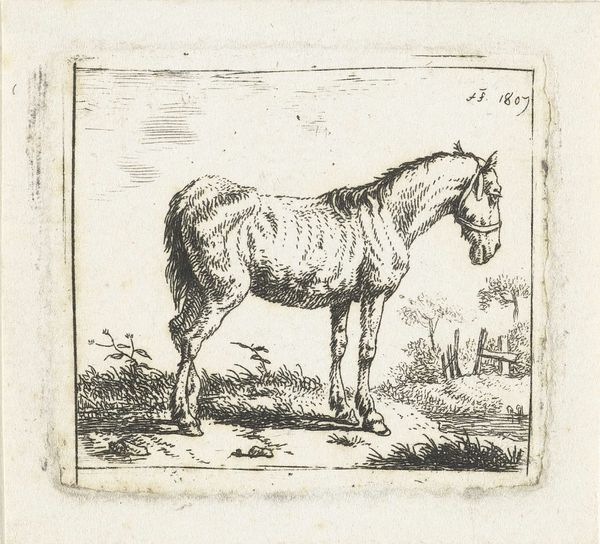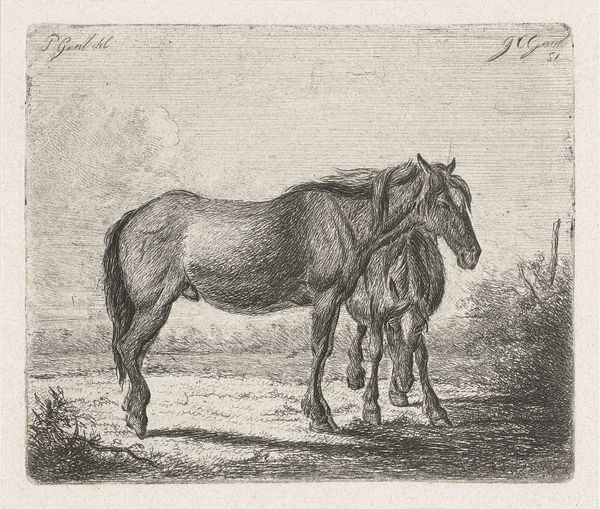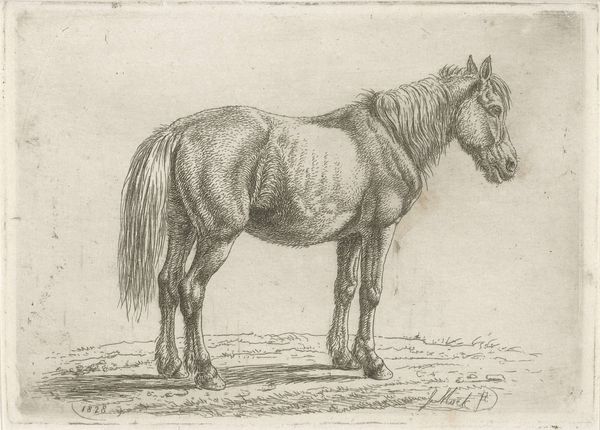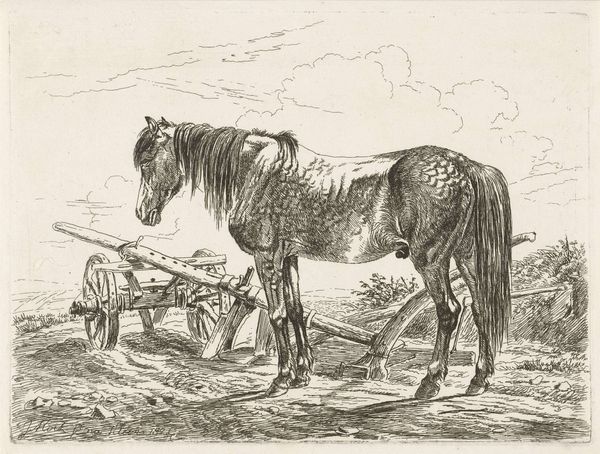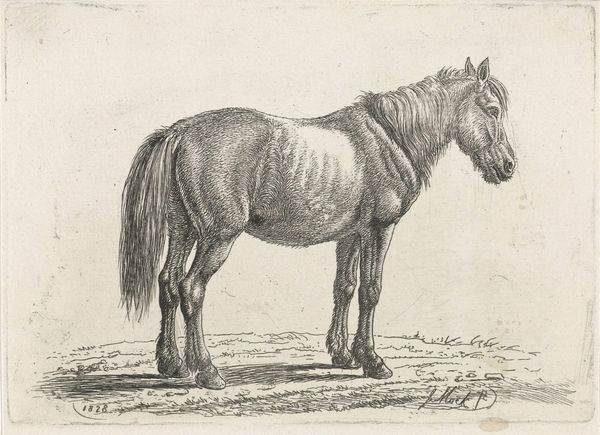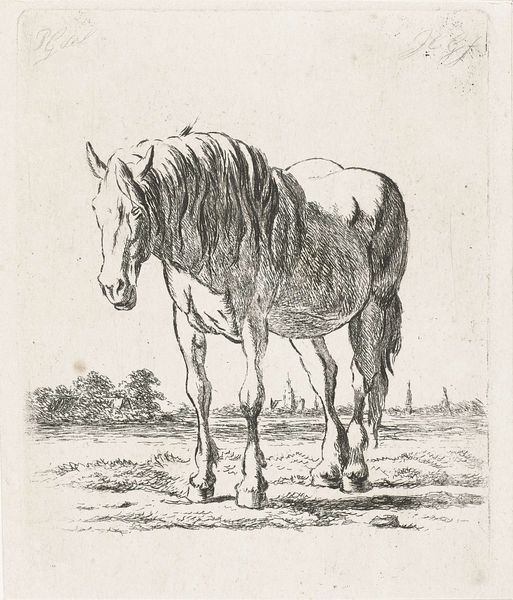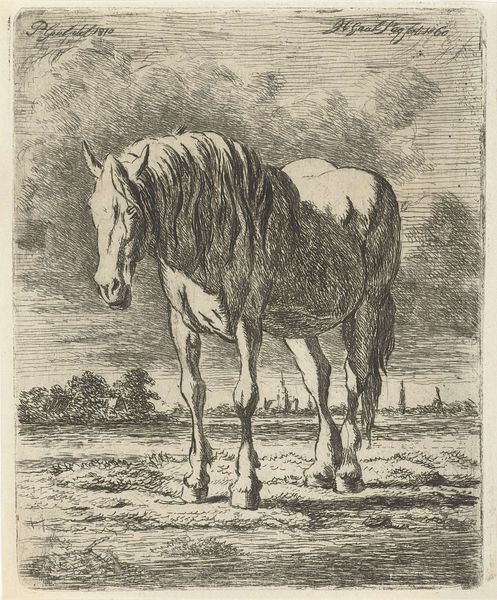
drawing, pencil
#
portrait
#
drawing
#
animal
#
landscape
#
pencil
#
horse
#
line
#
academic-art
#
realism
Dimensions: height 308 mm, width 430 mm
Copyright: Rijks Museum: Open Domain
Jean Bernard created this drawing of a spotted horse in a landscape, sometime around the late 18th or early 19th century, using graphite or black chalk. The magic of a drawing like this lies in the artist's ability to conjure form with just a few lines and subtle gradations of tone. Here, Bernard coaxes the texture of the horse's coat from the paper through careful hatching. Look closely, and you can see how the marks build up, dark where the horse is patterned, lighter where it catches the sun. While seemingly simple, drawing like this was a key skill for artists at the time. Accurate renderings of animals were crucial for scientific illustration, but also for representing wealth and status. Horses, in particular, were potent symbols of power and luxury, and owning a well-executed drawing like this would have signaled connoisseurship and good taste. It's a reminder that even the humblest materials, like paper and pencil, can carry significant cultural weight.
Comments
No comments
Be the first to comment and join the conversation on the ultimate creative platform.
